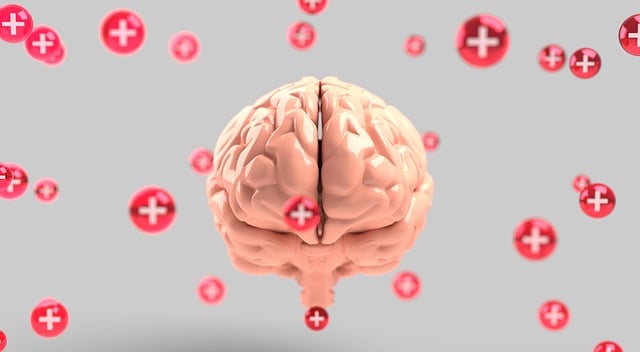Substance abuse in Castle Rock is a complex issue, but early intervention through services like Castle Rock Divorce Therapy plays a vital role in prevention. By promoting mental health awareness, reducing stigma, and offering therapeutic support, these initiatives foster resilience and recovery paths. Identifying behavioral changes and risk factors is key, especially during stressful life transitions. Healthcare providers' cultural competency training and mood management strategies further mitigate risks. Building community-focused recovery networks through support groups empowers individuals to overcome challenges. Evidence-based therapies like CBT and Mindfulness Meditation, combined with holistic approaches at Castle Rock Divorce Therapy, equip people with coping tools for long-term sobriety and mental well-being.
“Substance abuse poses significant risks, but proactive strategies can mitigate these dangers. This comprehensive guide explores effective risk reduction techniques for those battling substance abuse. We begin by understanding the nature of addiction and its associated hazards. Identifying risk factors and early warning signs is pivotal, followed by building a supportive network crucial for recovery. Evidence-based therapies, such as those offered by Castle Rock Divorce Therapy, play a significant role in treating addiction. Additionally, we’ll delve into coping strategies and lifestyle changes that foster lasting sobriety.”
- Understanding Substance Abuse and Its Risks
- Identifying Risk Factors and Early Warning Signs
- Building a Supportive Network for Recovery
- Evidence-Based Therapies and Treatment Approaches
- Developing Effective Coping Strategies and Lifestyle Changes
Understanding Substance Abuse and Its Risks

Substance abuse is a complex issue that impacts individuals across all demographics. It’s characterized by the excessive and harmful use of substances like drugs, alcohol, or other chemicals, leading to physical, mental, and social problems. Understanding substance abuse requires recognizing its multifaceted nature, encompassing not just the immediate risks of overdose or addiction but also long-term consequences on health, relationships, and overall well-being.
In Castle Rock, as in many communities, the challenges posed by substance abuse are significant. Mental Health Awareness initiatives play a crucial role in addressing these issues. By promoting positive thinking and reducing the stigma associated with mental illness, Castle Rock Divorce Therapy and other support services can encourage individuals to seek help earlier. Through various programs and therapeutic approaches, such as counseling and group support, communities can foster resilience and provide pathways to recovery, ultimately mitigating the risks of substance abuse.
Identifying Risk Factors and Early Warning Signs

Identifying risk factors and early warning signs is a crucial step in mitigating substance abuse issues. Individuals and communities can benefit from understanding specific behavioral changes that may signal underlying problems. For instance, sudden shifts in mood, increased irritability, or changes in sleep patterns could indicate distress, which might lead to substance use as a coping mechanism. Recognizing these signs early on is essential, especially for those going through transitions like divorce (Castle Rock Divorce Therapy) or experiencing high-stress situations, as it allows for timely intervention and support.
Healthcare providers play a vital role here by offering cultural competency training to staff, enabling them to recognize these subtleties and provide appropriate assistance. By integrating mood management strategies and burnout prevention techniques into their practice, healthcare providers can foster healthier coping mechanisms in patients, thereby reducing the risk of substance abuse. This proactive approach not only benefits individuals but also contributes to a more comprehensive public health strategy.
Building a Supportive Network for Recovery

Building a supportive network is an integral part of any recovery journey, especially when it comes to substance abuse. This involves fostering strong connections with individuals who can provide encouragement, accountability, and guidance throughout the process. A robust support system not only offers emotional backing but also helps individuals navigate challenges and triggers effectively. At Castle Rock Divorce Therapy, we understand that recovery is a community effort, which is why our approach includes connecting clients with like-minded peers through various support groups and community outreach programs.
By actively engaging in mental health awareness initiatives and crisis intervention guidance, these networks can play a pivotal role in preventing relapse. The sense of belonging and camaraderie within these groups allows individuals to share their experiences, learn from one another, and offer mutual support. This collective approach to recovery empowers individuals to stay on track, embrace positive lifestyle changes, and ultimately achieve long-term sobriety, with the knowledge that they are not alone in their struggle.
Evidence-Based Therapies and Treatment Approaches

Evidence-Based Therapies play a pivotal role in mitigating substance abuse, offering proven strategies that have been rigorously tested and shown to be effective. These therapies are designed to address the underlying causes of addiction, promoting long-term recovery. One such approach is cognitive-behavioral therapy (CBT), which helps individuals identify and change negative thought patterns and behaviors associated with substance misuse. CBT empowers patients to develop healthier coping mechanisms, enhancing their ability to resist cravings and manage triggers effectively.
In addition to CBT, various other evidence-based treatments have proven successful in Castle Rock Divorce Therapy and mental health settings. Mindfulness Meditation, for instance, has gained prominence as a valuable tool for reducing substance abuse. By fostering awareness and acceptance of emotions, thoughts, and sensations, mindfulness practices enable individuals to develop a stronger connection with their inner selves, thereby decreasing reliance on substances for emotional regulation. Furthermore, Mental Health Policy Analysis and Advocacy underscore the importance of comprehensive treatment plans that consider individual needs and societal factors influencing mental health. Risk Assessment for Mental Health Professionals is also crucial in identifying at-risk clients early, allowing for timely interventions to prevent substance abuse escalation.
Developing Effective Coping Strategies and Lifestyle Changes

Developing effective coping strategies is a cornerstone of managing and reducing substance abuse risks. Castle Rock Divorce Therapy emphasizes mindfulness meditation and mind over matter principles as powerful tools to regulate emotions, reduce stress, and build resilience. By integrating these practices into daily routines, individuals can cultivate healthier ways of dealing with difficult situations, ultimately lowering the likelihood of turning to substances as a coping mechanism.
In conjunction with evidence-based therapy, lifestyle changes play an equally vital role in risk reduction. Risk Management Planning for Mental Health Professionals guides individuals towards creating personalized strategies tailored to their unique needs and triggers. This proactive approach encourages the adoption of healthier habits, better stress management techniques, and enhanced self-care routines—all contributing to long-term recovery and improved mental well-being.
Substance abuse is a complex issue, but with the right strategies, recovery is achievable. By understanding the risks, identifying early warning signs, building a supportive network, and utilizing evidence-based therapies like those offered by Castle Rock Divorce Therapy, individuals can take significant steps towards a healthier life. Developing effective coping strategies and making positive lifestyle changes are also crucial for long-term success. Armed with knowledge and support, anyone can overcome substance abuse and build a brighter future.














